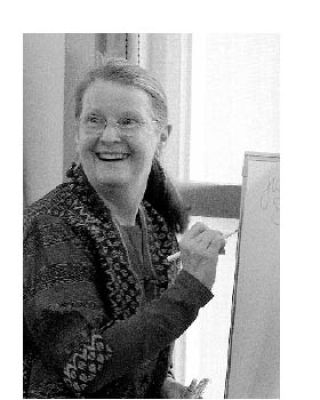Restorative justice? What’s that? More than 40 Lopezians turned up to find out in a presentation hosted last month by the Lopez Island Quaker Meeting at Grace Church Hall.
In brief, it’s a process where all parties with a stake in a particular offense come together to collectively resolve how to respond to the aftermath of the offense and its implications for the future.
The October talk was about how we can apply restorative justice principles to difficult issues arising in our Lopez community. Whether it is a conflict in the school or some other community setting or a criminal activity – any situation where people seek justice and healing.
So great was interest at that event that a group formed to organize a two-day workshop on Lopez on Nov., 13 and 14 at the Lopez School. “Restorative Justice Training: A Hands-On Workshop” will be led by Beth Rodman, one of the October presenters, and Jana McKinley, who runs conferences for youth in Thurston County.
The workshop is sponsored by Lopez Island Family Resource Center, Lopez Community Land Trust, KLOI Community Radio and Lopez Island Quaker Meeting. The cost will be on a sliding scale from $30 to $60 with limited scholarships available. Workbooks are $30 (included) and Rodman and McKinley are providing their time gratis. Child care will be available to make the training accessible to those with children. Pre-registration is needed by Nov. 5.
“I have great hopes for Lopez,” says Rodman, “and one is that we train enough ordinary folks that you can handle many cases yourselves without even calling the police. It’s good we have the police when really bad stuff happens but the people of Lopez can likely handle most incidents so that feelings, harms and other needs are addressed and we return any victims and offenders back into their community as healthy contributing citizens of the island. To the degree possible, most people want the harm to everyone “un-done.’”
Organizers have invited and saved some of the thirty slots available for Lopez school personnel, including students. They also invited staff from the San Juan County adult and juvenile probation department, both candidates for sheriff, Lopez deputies, and the public defenders’ and prosecutor’s offices.
“It seems to me that restorative justice is not just a tool to use after a crime but on a regular basis,” notes Sandy Bishop, executive director of the LCLT. “By helping us see, speak and hear in new ways, it could help prevent crimes. It would be a further refinement of what our community already practices.”
Lexi Taylor agrees. “Restorative justice is a way to deal with people instead of crimes. It puts a face on injustice and allows all people involved to see another way of addressing societal problems. It unclogs courts, changes attitudes, saves money, allows victims and perpetrators to be a part of a healing process, and it has the potential for changing behaviors.”
“I had never heard of restorative justice until we had the meeting at Grace Hall, but it sounded so perfect for our small community,” says Kay Keeler. “Sometimes decisions are made by individuals, businesses and government which cause hard feelings, and restorative justice looks like a great recourse for Lopez Islanders.”
“As a professional counselor, I feel strongly that ‘talking it through’ can be useful in settling some disagreements,” says Jan Sundquist, “and could perhaps be a useful step toward settling even more complex issues.”
“Beth is offering this workshop free for our community to help us improve a set of skills we already have – finding our voices, and listening to others,” says Steve Horn, a clerk of Lopez Island Quaker Meeting. “She hopes it will fuel Lopez enthusiasm for participating in restorative justice here on our island and become a model for other communities. That’s my wish too.”
To register or get more information, contact Carol Steckler at 468-2138 or at humhouse@rockisland.com.
Learn more about restorative justice at www.restorativejustice.org.



